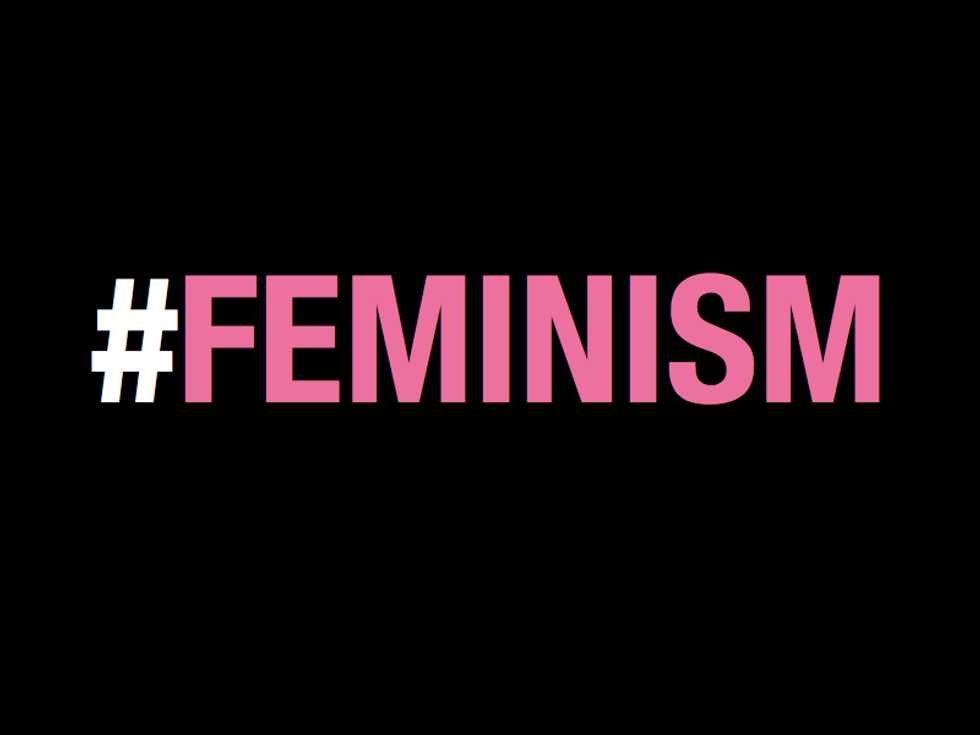What is feminism, and where does it stem from?
Feminism is a term coined in the 1880's from the french word "feminisme". This world means feminist. This term wasn't widely used in the United States until about the 1960's. The feminist movement traces all the way to the 19th and early 20th century, and continued up to today.
The First Wave of feminism, was the only wave that used the traditional term suffragette. A suffragette is a woman seeking the right to vote through organized protest. This eventually evolved into seeking equal opportunities between man and woman. Suffragette's also often were civil rights activists as well. In the first wave, women began to question the significant equality differences between themselves, and men. A significant event that occurred in the first wave was the 1848 Seneca Falls Convention. The Seneca Falls Convention was the first women's rights convention. It advertised itself as "a convention to discuss the social, civil, and religious condition and rights of woman". Some suffragettes who made a big impact during the first wave of feminism were, Susan B. Anthony, Lucretia Mott, Elizabeth Cady Stanton, and Sojourner Truth. They all were extremely active in the movement during the 20th century, and were the ultimate push to the start of women's rights. Altogether this first wave created the Declaration of Sentiments, and voting rights as citizens.
The Second movement of Feminism started in the 1960's. The central issues surrounding this wave were, reproductive issues, educational opportunities, political rights, sexual violence, and general elimination of sexism from U.S culture. During the 1960's, some specific feminists stood out because of their work such as Betty Friedan who wrote, "The Feminist Mystique". This book became monumental for women across the U.S nation because the volumes it spoke about what it was like being a woman during this era, and the inequality between genders. This wave also became more collaborative between women that were white, and women of color as well, so intersectionality became more existent. In the 1980's, there was a period of conservative "backlash". Conservative Backlash was the hostile reaction to reform, especially backlash against civil rights, and anti feminists. Conservatives who were against the feminist movement, and civil rights movement were the ones who created this turmoil.
The third wave of feminism began in the 1990's. This wave primarily focused on the continued elimination of sexism. This wave was a rallying cry for young feminists. Rebecca Walker wrote a piece called "Becoming the 3rd Wave", and basically that discusses Walker criticizing the supreme court, for not serving justice for Anita Hill for being sexually assaulted by Clarence Thomas. Walker also addresses the oppression of the female voice and introduces the concept of Third Wave Feminism. Walker defines third wave feminism at the end of the article by saying “To be a feminist is to integrate an ideology of equality and female empowerment into the very fiber of life. It is to search for personal clarity in the midst of systemic destruction, to join in sisterhood with women when often we are divided, to understand power structures with the intention of challenging them.” The third wave has also made it efforts to fight for intersectionality between genders, and further incorporation of racial, LGBTQIA, and disability issues.
The big question of them all is, are we entering a fourth wave of feminism? There has been an immense shift in society in terms of becoming more educated on topics such as this, and now it is becoming a more widely popular subject in our world. Feminism is progression, and in my opinion I believe we could very well be if not now, be on our way to the fourth wave with more change in society to come. My general perception of what the fourth wave could be is more gender inclusivity, understanding the concept that you don't need to be a woman to be a feminist, protection for people that have experienced, or are prone sexual assault/abuse, and creating equal opportunities for all in the LGBTQIA community.





















